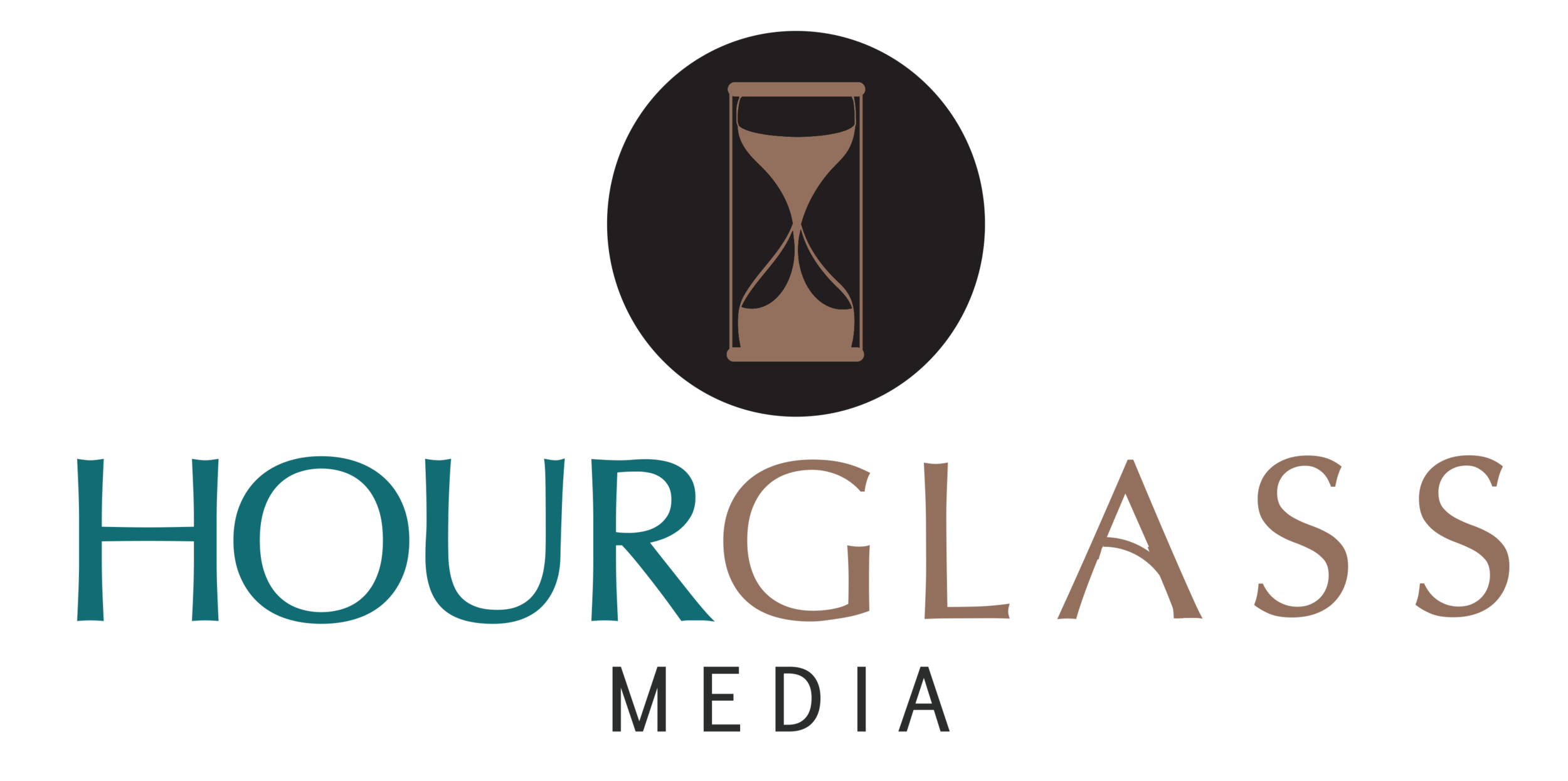Mental Health Moments: Panic Attacks Versus Anxiety Attacks
⌛ By Kaylin R. Staten ⌛
In 2017, I wrote a series of mental-health-related online content for several clients. These public writings were a new frontier for me and Hourglass Media and ignited my personal and professional journey toward mental health advocacy. For the first time, I used my experiences to shape some of the content. At that moment, during my own battles with anxiety, I made a decision: I wanted to help people by sharing my own mental health moments. Yes, the good, bad, ugly parts that stigma tells us we can’t talk about.
Many of us encounter panic attacks and anxiety attacks due to our particular brand of mental health disorder or issue. For me, anxiety masquerades as perfectionism. In high school, I was so intimidated by college entrance exams that my anxiety caused me to have a full-fledged panic attack in my bedroom. What if I wouldn’t make it into college? What if I was destined to be a failure? What if, what if, what if… These thoughts, accompanied with the physical manifestations of a panic attack, allowed me (a straight-A student, mostly) to succumb to some of my deepest fears at a very young age.
Although the terms are often used interchangeably, panic attacks and anxiety attacks are two different occurrences.
What are panic attacks?
For the most part, panic attacks are unpredictable and happen during random timeframes. The Anxiety and Depression Association of America defines panic attacks as “an onset of intense fear or discomfort that reaches a peak within minutes.” The fear is accompanied by physical symptoms, such as a racing heartbeat, the inability to move, sweating, shortness of breath and an overall smothering feeling, nausea, dizziness, changes in internal body temperature (chills or flushed), feeling detached from oneself and surroundings, the fear of losing control and the fear of dying. Usually, once the panic attack reaches its zenith, the symptoms begin to lessen, until they are gone altogether. Oftentimes, people mistake a panic attack for a heart attack because the symptoms are so similar. When in doubt, see a physician immediately to rule out heart issues and to receive peace of mind.
What are anxiety attacks?
Usually, anxiety attacks are correlated to a specific stressor. For example, you could be nervous to attend a social event because you have to network when you’re an introvert. You could play out scenarios in your mind -- what could go right and what could go horribly wrong. You sit there, playing the “What If” game, until your mind goes into hyperdrive. This is a breeding ground for anxiety attacks. According to a BBC article, many of the physical symptoms are the same as panic attacks, but anxiety attacks are also accompanied by blows to your self confidence, focusing on upsetting triggers, fatigue, hypervigiliance, restlessness, irritability and wanting to escape your current situation.
How can you lessen the impact of panic attacks and anxiety attacks?
Professionals recommend to just allow the panic attacks and anxiety attacks to occur instead of suppressing them. Of course, all of us find ourselves in public situations in which we need to maintain our composure. When this happens, be sure to deal with the aftereffects of your anxiety in ways that help you. For example, take a mental health day from work, read a book, go for a walk -- do what helps you in your time of need. One way I decrease the blow of a panic or anxiety attack is to imagine a safe place in my mind while closing my eyes and taking a deep breath. I also write in my journal, talk with people I trust and work toward my overall goals/objectives for my business.
And, of course, working with a professional also helps you figure out the core issues behind your panic attack or anxiety attack. Don’t be alarmed if a depressive episode follows. This is a common occurrence.
Please note: These blog posts will not be clinical, although we will provide symptoms and other information. These posts are based on my experiences with anxiety and mental health in general.
If you or someone you know needs help, visit a website like Mental Health America to learn more.
Mental Health Moments blog posts are every other Tuesday of the month. Our CEO and contributors highlight what it's like to live with a mental health disorder and continue to fight the stigma through storytelling.
Copyright © MMXVIII Hourglass Media, LLC
Kaylin R. Staten is an award-winning public relations practitioner and writer. She owns Hourglass Media, a consulting company based in Huntington, WV.
⌛ ⌛ ⌛
